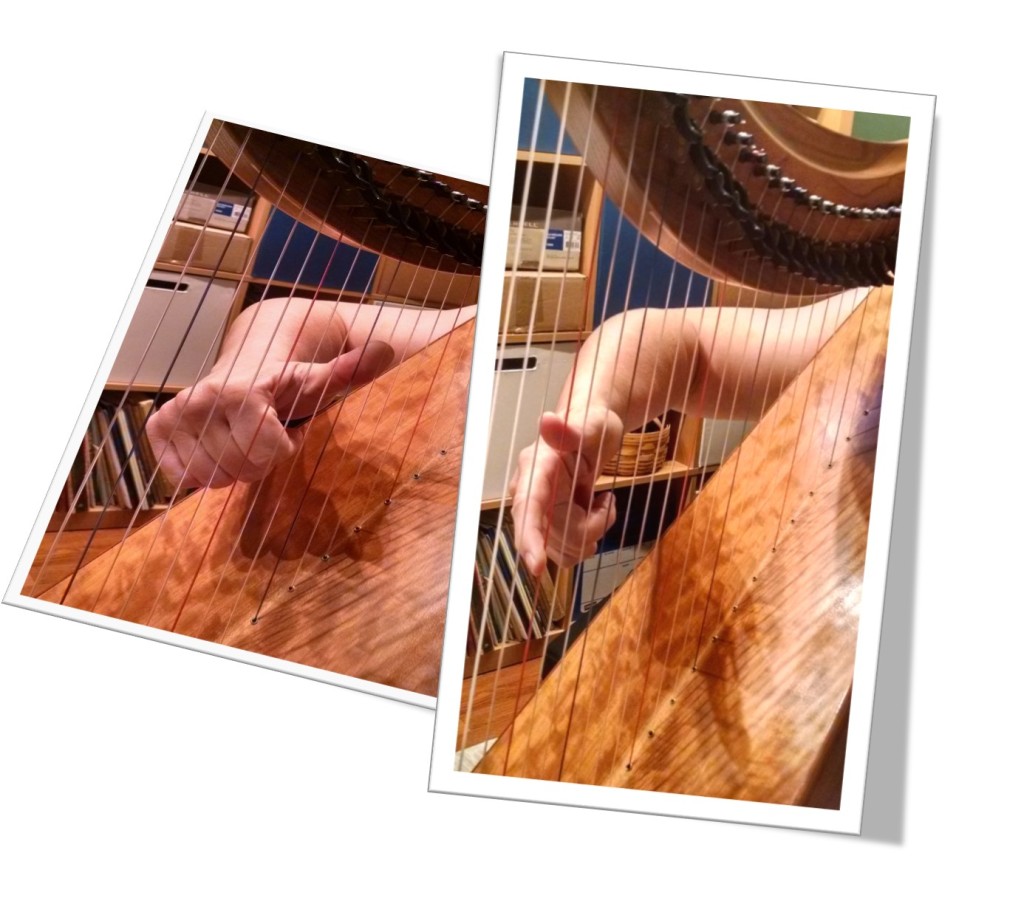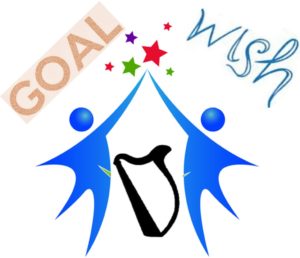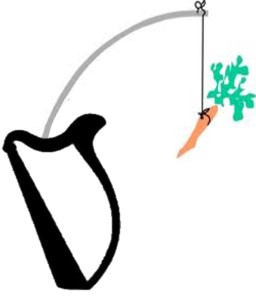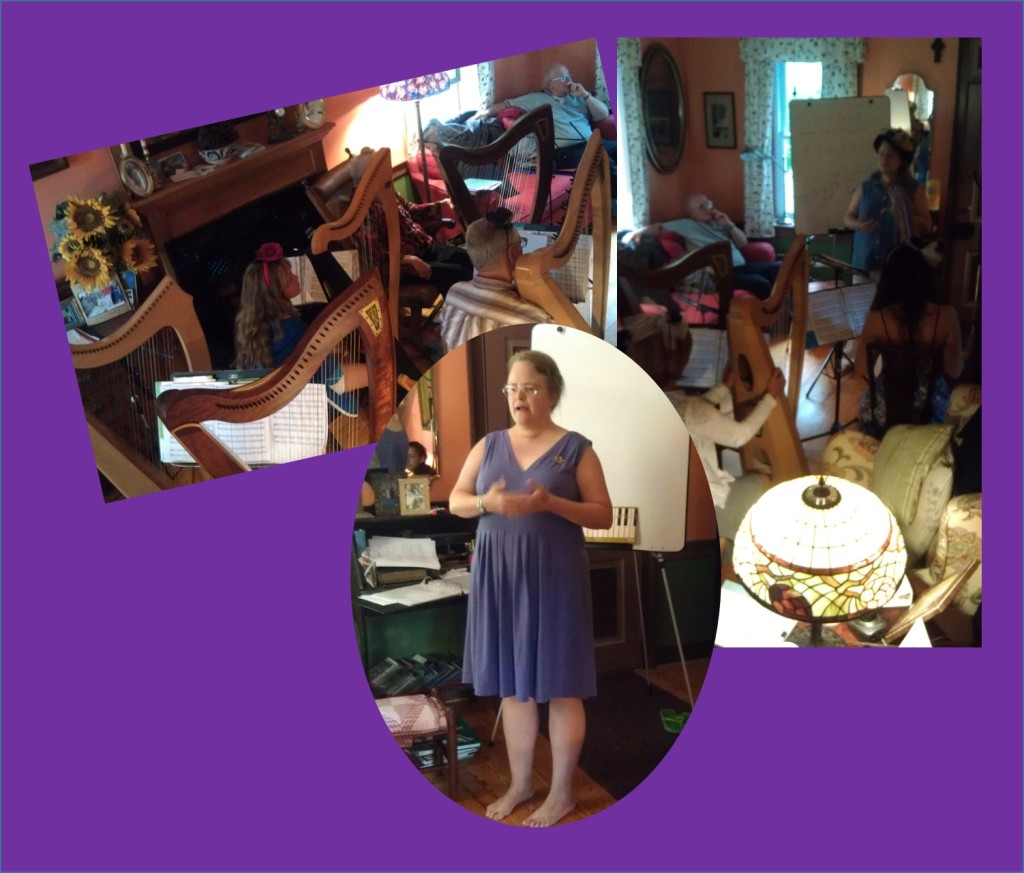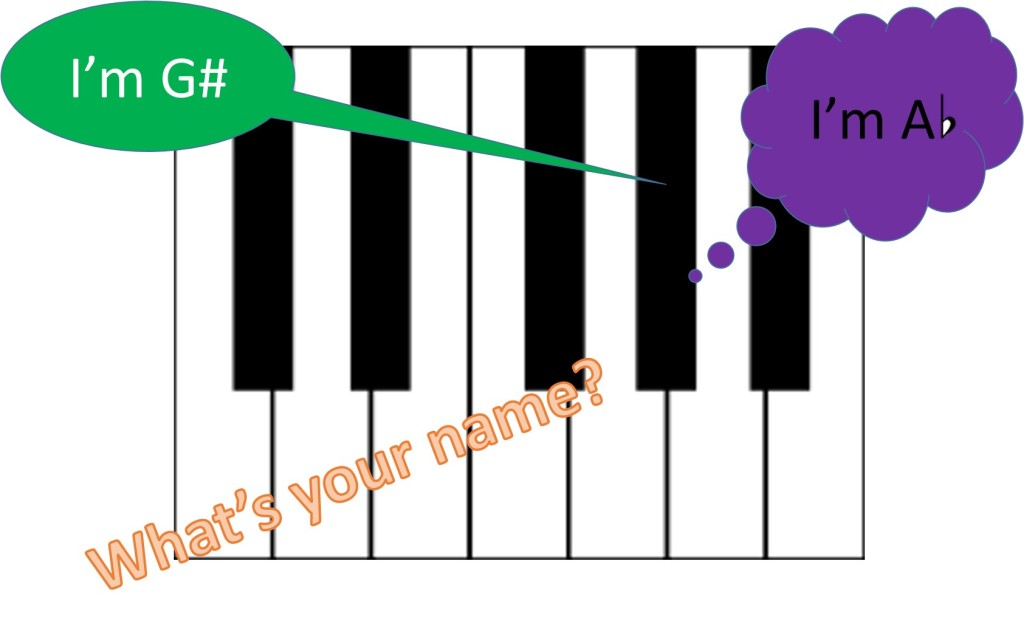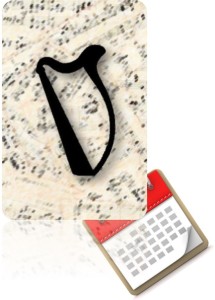One of the things that defines the music of the harp has got to be the glissando. Glisses are central to any showoff repertoire, and while they are easy to do, they are very difficult to do correctly! The only way to get good at glissandos is to do them, practicing them until they are perfect – but you already knew that.
First – what is a Gliss? Glissando comes from the French word Gliser – to slide* and when doing a gliss, you do, in fact slide up the strings.
Glissandos are tricky beasts – yes, they are dead easy to whip out but devilishly difficult to get right!
Glisses have a beginning, an end, and should have some specific characteristics including being even in tempo, include dynamics, beginning and ending on time and on the right notes, should be in the key denoted and should be effortless. No cheating with “stop fingers”!
Glisses can go up or down. They are not used so much in traditional music but are present more in classical music. Glisses are also variable and may take many forms. But most of us more trad players who just want our listeners to be happy. We are just looking to rip off a four octave drag up the strings and back down again in that crowd pleasing glissfest that seems to keep them coming back for more (and lets admit it – they are kind of fun!).
Going up, use your 2 or 3 finger with a gentle curve and draw up the harp – keep your elbow lifted like you’re drawing a bow. To go down, use your thumb and push your hand away from you. Not hard.
Except of course, the details are where the work lies. Breathe and count – don’t play longer or shorter than the gliss gets – you don’t want to shy the values or make an expansive ritardando where you didn’t really mean to. Follow any dynamic that might be needed to assure the gliss suits the tune and isn’t just a splash of noise! Start on the right first note and end on the correct last note. Practice smoothly moving along the strings, not “stuttering” through the notes (especially that last one when you try to end in the right place!).
So, practice doing them correctly, so they are crisp and correct – playing the notes you meant to and no more and you’ll begin to enjoy playing glisses for fun
